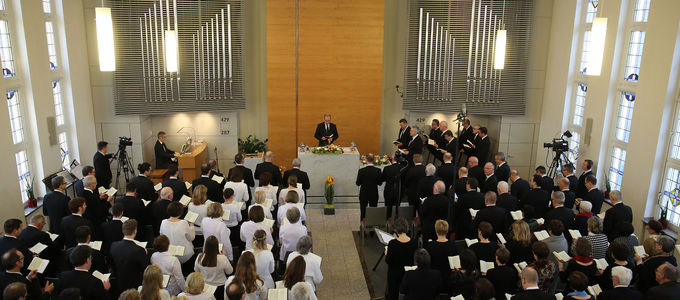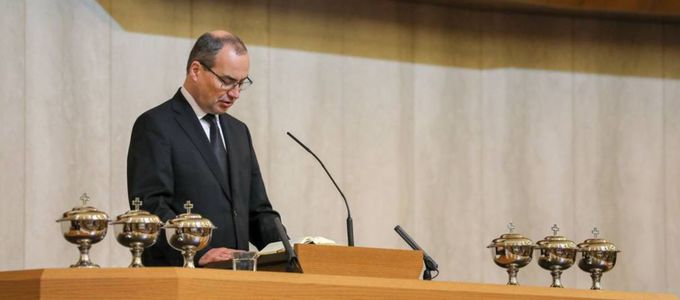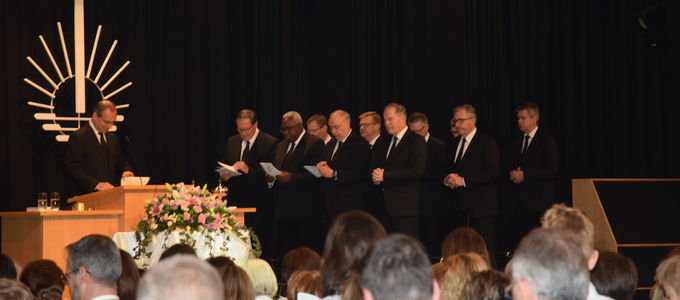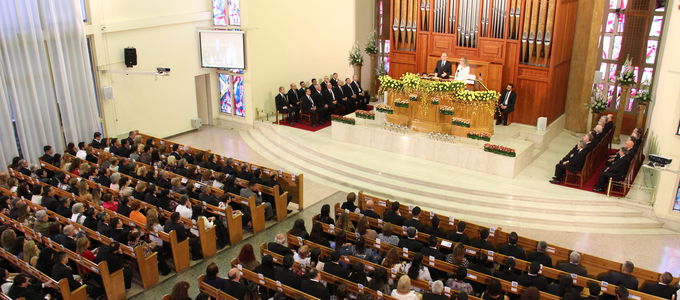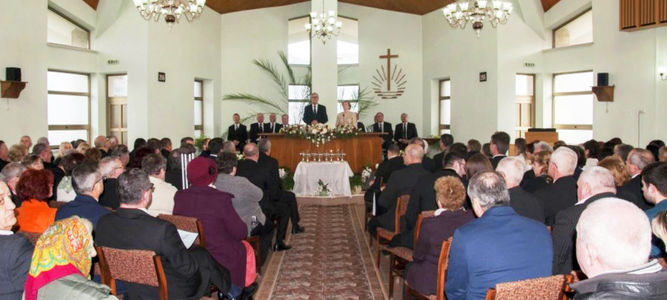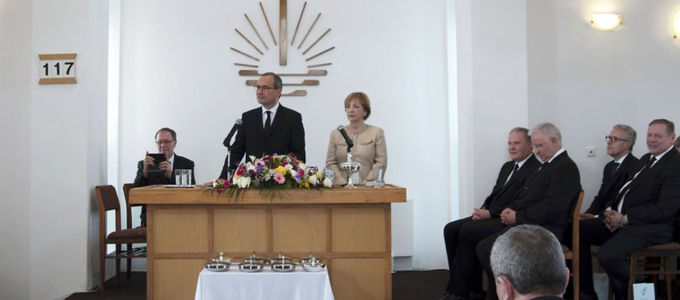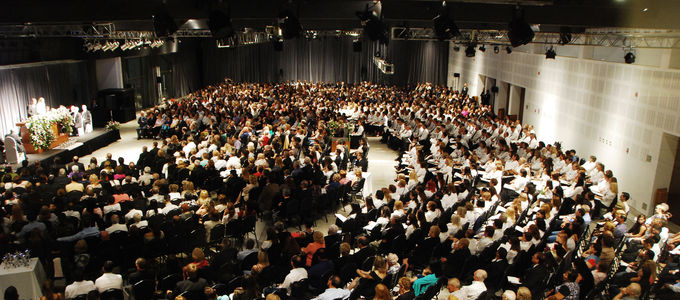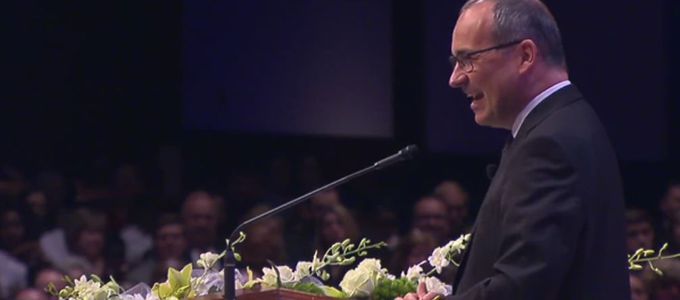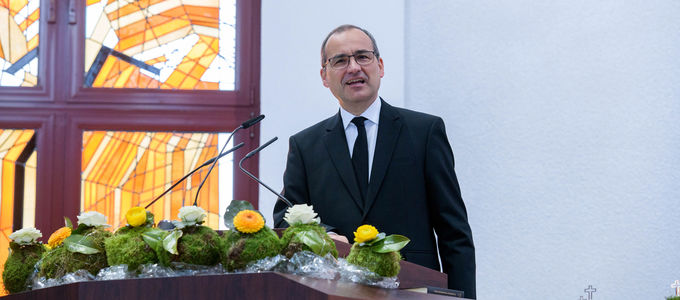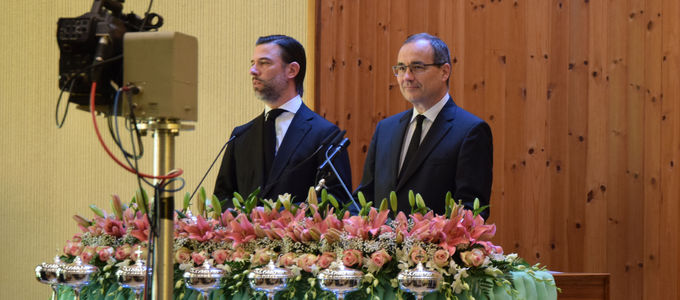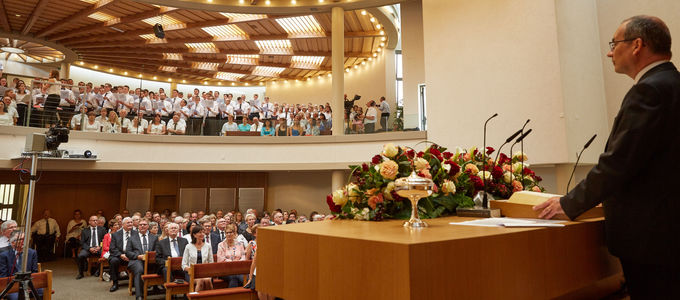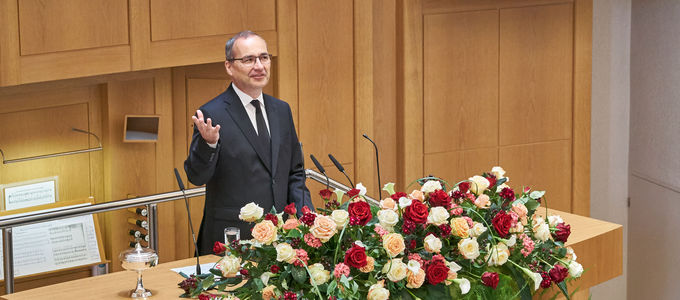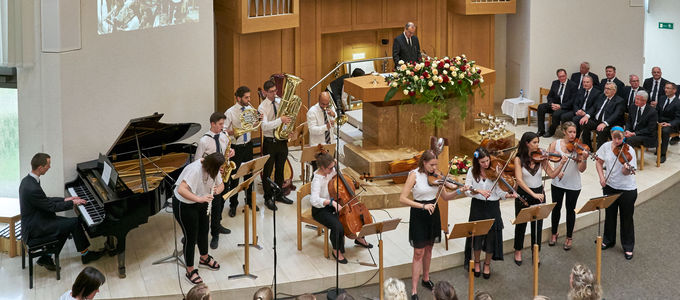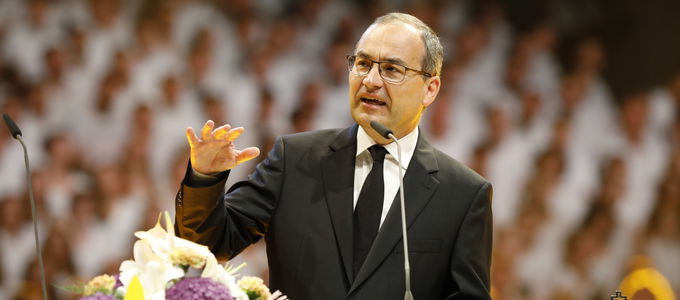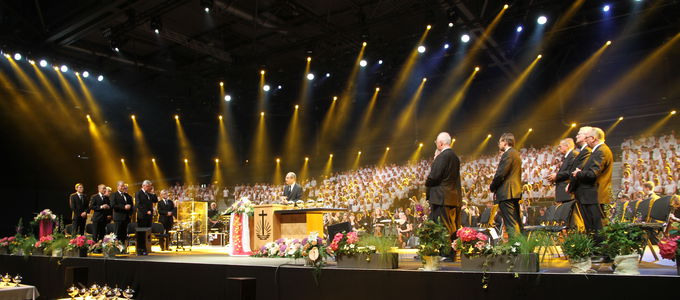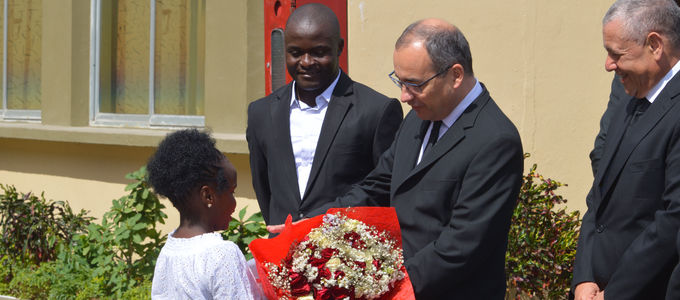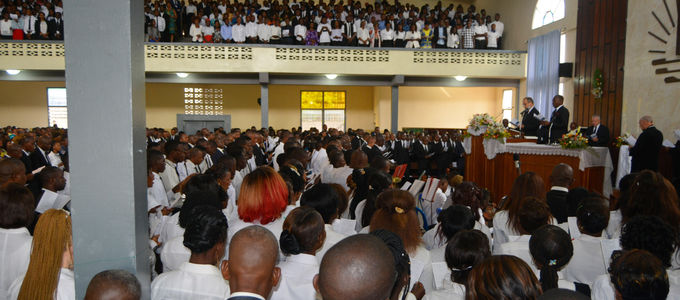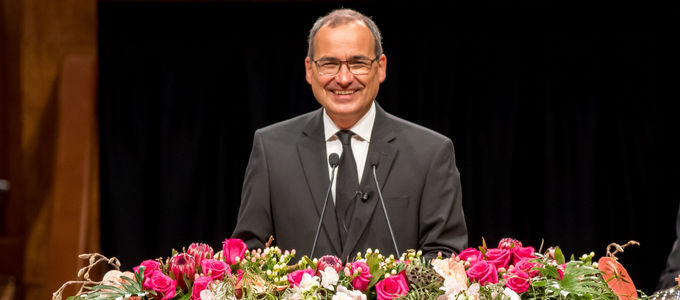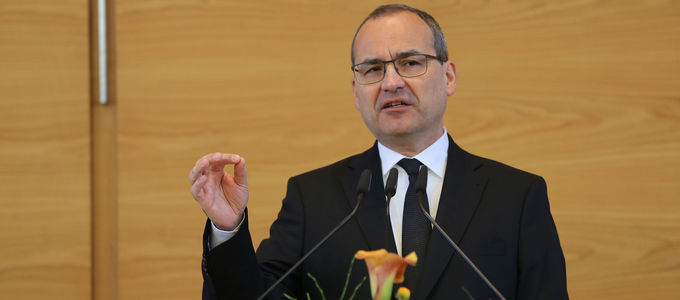
This question is often asked. Answers and advice are typically found in the Chief Apostle’s sermons. Following are core thoughts from divine services in 2018.
… the importance of Sunday?
Christians who celebrate Sunday make a double profession, the Chief Apostle said in Cologne (Germany). Firstly, they profess their belief in the resurrection of Jesus Christ. “We do not agree with evil, injustice, and with the domination of evil and demonstrate this. By coming together on Sundays we declare: we do not agree with these goings-on; we believe in the victory of good over evil.” Secondly, they profess belief in their own resurrection: “We anticipate our resurrection, and whatever we have experienced and lived through, our priority remains our resurrection.”
… the proper way of serving?
“A faithful servant is a servant who is dependable and steadfast. Such a servant will do his work when he finds it enjoyable, but also when it is not enjoyable. He will do his work when it is easy and pleasant, but also when it becomes difficult. He will perform his duties whether he is praised or whether he is criticised, whether he receives thanks for it or whether he is ignored,” the Chief Apostle said Berlin (Germany). In Ocna Mures (Romania) he reaffirmed: “To be active in the mind and spirit of Jesus Christ means to be aware of the fact: I am a servant and not a ruler.”
… dealing with sinners?
“If someone has committed a sin, it will do no good to sermonise. Those who are weak need love, they need grace, and they need understanding,” the Chief Apostle explained in Berlin (Germany). And in Baia Mare (Romania) he added another point: “Let’s also adopt the following attitude of Jesus: we do not expect God to punish sinners and condemn those who are evil.”
… setting priorities?
Many things in life have priority. “But if the fire of the gospel burns in us,” the Chief Apostle said in Landquart (Switzerland), “our priorities are redefined: we must take time—time for the divine service, but also time for prayer. We must likewise take time to occupy ourselves with the gospel.”
… a special task for parents?
Inspiring the next generation for Jesus Christ takes time, effort, and sometimes even a little willpower. In Landquart (Switzerland) Chief Apostle Jean-Luc Schneider clearly said: “This is something that cannot be delegated to the Church. This is something you have to do, dear Mother, dear Father. And in order to ignite this fire in your children, it first of all has to burn within you. And then you need to take time to tell your children about Jesus Christ. You have to make time to pray with them.”
… divine election?
To be chosen, he explained in Ocna Mures (Romania), means to serve Jesus as those who have been reborn out of water and Spirit. And this occurs in many ways. As witnesses in the world, for example: “We are to bear witness of the gospel where we live.” As members of the body of Christ, “we are to serve one another and put our gifts at the service of Jesus in the church of Christ.” And as priests of God in the kingdom of peace: “So that all human beings can come to Jesus Christ and enter the glory of God.”
… dealing with trials and suffering?
In order to be able to enter the kingdom of God, we must fight some personal battles. Maybe we become sick or one of our loved ones becomes ill or dies, maybe we lose our job or suffer an injustice—and this in spite of having faithfully served the Lord for years. In Rosario (Argentina) Chief Apostle Schneider said: “Let us not be indignant when God asks us to fight one more battle, but let’s accept the challenge! With God’s help, we will triumph!” And in Kinshasa (DR Kongo) he explained: “Our affliction is light. It will not last forever. Just think of the glory that God will grant you: it will be for all eternity!”
… egoism?
“God does not expect us to renounce our personality or will, but He does expect us to renounce the ego cult,” the Chief Apostle said in Leipzig (Germany). “What is egocentrism anyway? That is when I make myself the focus, and when everything revolves around me. Everything is all about me. And I evaluate everything from the perspective of my own person.” This is definitively the dark side of the ego—and it is not consistent with Christian faith.
… how we deal with our differences?
Natural differences between people do not prevent unity in Christ, he said. “We need our differences. They become a chance and a blessing if we have decided to become a team and fight for God and with God,” the Chief Apostle said in Washington (USA).
… prayer?
“You don’t need to pray night and day, but please seek a connection with God often. Don’t only pray in divine service. Please make time for personal prayers.” That also means making time to thank Him: “So many people are forever dissatisfied. If they were a little bit more grateful towards God, they would experience more joy and peace.” Requests and wishes are also possible, the Chief Apostle said in Karlsruhe (Germany). And in Albstadt (Germany) he mentioned twelve petitions that God hears.
… participation in Holy Communion?
“Holy Communion must have visible effects on the faithful and the congregation,” the Chief Apostle said in Dar es Salaam (Tanzania). “Those who believe in the victory of Christ have no reason to fear the future.” A change also becomes evident in the relationship to one’s neighbour: “You no longer emphasise the mistakes others make.”
… preparing for a divine service and following up on it?
“It is important and useful to prepare for the sermon and to follow up on it afterwards by reading in the Bible; that is our job.” Because knowing the Bible creates security and comfort, reinforces the sermon and increases its effectiveness, and helps us to recognise mindsets that are incompatible with the gospel, the Chief Apostle said in Trebaseleghe (Italy).
… the return of Jesus Christ?
“We believe in God’s plan, expect and desire its fulfilment, and are patiently preparing ourselves for it,” the Chief Apostle said. He does perceive faith in the Christian world, he said, but the hope in the future has diminished. But hope is an integral part of faith. “Where a person’s faith is no longer associated with the future, it becomes a mere tradition or a moral standard, but it will not bring salvation. I am really concerned about this. Let’s hold on to our hope,” the Chief Apostle exhorted in Bern-Ostermundigen (Switzerland). “I am definitely not a dreamer,” the Chief Apostle said in Brisbane (Australia) “but from time to time it is worth thinking about what it means to be delivered from evil, to have a resurrection body, to be perfect, to conform to God’s will, to be in total harmony with God and with one another, and to have received this special mission to help everyone obtain salvation in Jesus Christ. I tell you, the more I think about it the more enthusiastic I am about it. That’s our future!”






